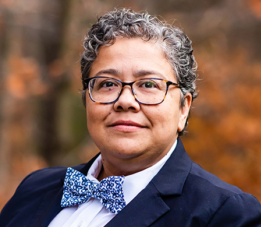How an educational opportunity for CDFIs can make an impact

The strength of any community is dependent on the success of its small businesses and residents, and Community Development Financial Institutions (CDFIs) are vital to ensuring their success.
CDFIs are specialized financial institutions with a mission to provide financial services and support to underserved communities. They are typically mission-driven and focus on promoting economic development, job creation and affordable housing in low-income areas. CDFIs can take various forms, including banks, credit unions, loan funds, venture capital funds and nonprofit organizations. They are certified by the U.S. Department of the Treasury's CDFI Fund, which provides financial assistance and technical support to help these institutions fulfill their mission.
MGCC recently partnered with the University of New Hampshire and the Massachusetts Association of Community Development Corporations (MACDC) to offer a class to current and prospective CDFIs. The legislative allocation of $17 million in 2020 to the CDFI Capital Lending Match Program administered by MGCC, created the opportunity to provide capacity building education to CDFIs. This class is similar to educational programs MGCC has historically provided for its Small Business Technical Assistance (SBTA) Grant Program participants through Cambridge College.
The purpose of the CDFI class was twofold, said MGCC Chief Community Programs Officer Ari Velóz, who coordinated the course.
“One, the class was to help existing CDFIs look at sustainable models, while providing the historic context of how CDFIs even came to be,” Ms. Velóz said. “It also addressed fundraising, different products, target markets for organizations that wanted become a CDFI. It really provided a path forward, where they’re coming in to gain an understanding of the different layers of what a CDFI does. That can be overwhelming because essentially a CDFI is a bank. It’s just that the focus of this bank is tied to the community.”
The class, an online, three-module course, was conducted from March 30th to April 13th and taught by Michael Swack, a professor at UNH, where he has appointments at the Carsey School of Public Policy and at the Peter T. Paul College of Business and Economics.
“I’m hoping that people who take the course get a sense of how these institutions work, a little bit about their history, what products they offer, who they serve, and how they function internally,” Mr. Swack said. “That is, how they operate, make decisions and raise capital.”
The class is intended both for those who are new to or entering the CDFI arena as well as those who are experienced.
Jorge Cabrera joined African Community Economic Development of New England (ACEDONE) as its Business Development/Loan Officer in January. While his background is in the investment partners industry, he is new to the CDFI field.
“I really enjoyed the class,” Mr. Cabrera said. “We are looking through the class material to get a better understanding of loan applications, the underwriting policy. We are taking a lot of the information from the class to make sure that we’re including all this information to make sure that we are secure and that we’re doing everything the right way. And the same for the whole operation. We’re looking into the class to see how we can set goals and then try to qualify our programs on the impact they’re having on the target population.”
Grace Moreno is the Executive Director of the Mass. LGBTQ Chamber of Commerce. She is considering completing the certification for the organization to become a CDFI.
“Our impetus for considering this CDFI status – and we’ve got a funder who’s interested in funding us – is because there is not LGBTQ-focused CDFI in the country,” Ms. Moreno said. “So, if we’re able to launch something like that and really start to show: This lender went to that institution, didn’t get that loan, came to us and we were able to do the loan. Then we’re able to say, ‘See, here’s how many times out of this control group of 500 people that this gets done.’
This class is tailored to issues that are specific to Massachusetts CDFIs in helping small businesses access capital and other resources. These are important issues that have an impact on the health of small businesses and economic development of the Commonwealth.
Additionally, MGCC is currently conducting a study on CDFIs in Massachusetts.
If you would like to be informed of opportunities to enroll in future classes, please click here:


